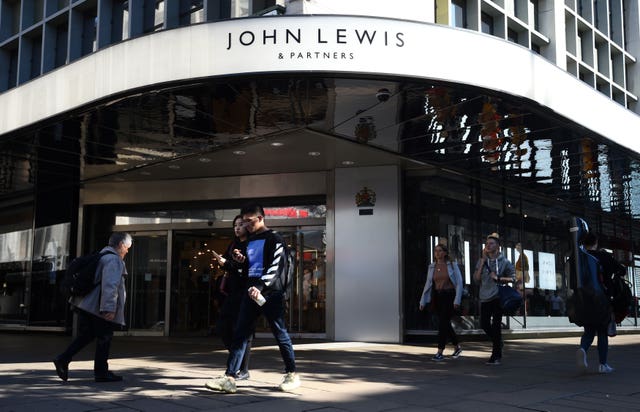
Shoppers cut down on both how much they bought and the amount they spent at the end of last year, new figures show.
In the three months to December, amount spent and quantity bought fell 0.9% and 1% respectively when compared with the previous three months, the Office for National Statistics said.
On a month-by-month basis, the amount spent dropped 0.3% and quantity bought was down 0.6%, compared with increases of 1.5% and 0.9% respectively a year earlier.
Rhian Murphy, ONS head of retail sales, said: “Retail sales fell sharply in the latest three months, with almost all sectors showing a decline.
“The longer-term picture is still one of growth, although it has slowed considerably in recent months.
“December was the fifth consecutive month with no growth as food stores suffered particularly poor sales, showing the steepest fall for three years.”
The figures come as the British Retail Consortium reported earlier this month that December had been a difficult month for the high street.
Retailers have struggled to build sales, with several saying the toy and electrical markets were experiencing particularly tough conditions.
The worst-performing sector was textiles, clothing and footwear, with quantity bought down 2%, followed closely by department stores and food shops, down 1.8% in December compared with a month earlier.
The best-performing sub-sector was fuel, which saw a 1.6% increase in quantity bought.
Online sales continued to outperform the high street, but there was a significant slowdown, with growth of just 1.6% in December compared with the previous month.

There was a heavy 4.2% fall in online food orders compared with November – contributing to a 6.6% drop year on year.
Richard Lim, chief executive of Retail Economics, warned that the poor statistics could lead to a fall in GDP figures for the final quarter of 2019.
He added: “These numbers paint a pretty bleak picture for Christmas trading, especially for the food sector.
“It’s becoming increasingly clear that shoppers are happily shying away from the main grocers in favour of the discounters as they prioritise value over range.
“What’s more, the backdrop of healthier household finances has not benefited the retail industry as consumers remain very cautious in their discretionary spending.
“Shoppers’ propensity to spend remained weak as uncertainty around Brexit and a weaker economy has severely undermined their confidence.”
However, the figures strip out the effects of one of the busiest shopping days of the year.
Black Friday fell six days later last year than it had in 2018, pushing it into the period that the ONS measures for December’s statistics.
The statisticians removed the effects on the shops that discount the most on Black Friday.
However, some sectors, such as essential supermarket products, tend not to be affected by the sales.
Last week, the British Retail Consortium (BRC) released figures showing retail sales had dropped for the first time on record.
Retail spending fell by 0.1% in 2019, according to its figures, compared with 1.2% growth in 2018.
“Retail remains in the midst of a transformation driven by new technologies and changing consumer behaviour,” the BRC’s Kyle Monk, head of retail insight and analytics, said after the ONS statistics were released.
The fallout of a poor Christmas claimed the boss of John Lewis last week as the company warned it may slash staff bonuses.
Sales at the department store fell by 2% in the seven weeks to January 5.


Comments: Our rules
We want our comments to be a lively and valuable part of our community - a place where readers can debate and engage with the most important local issues. The ability to comment on our stories is a privilege, not a right, however, and that privilege may be withdrawn if it is abused or misused.
Please report any comments that break our rules.
Read the rules here